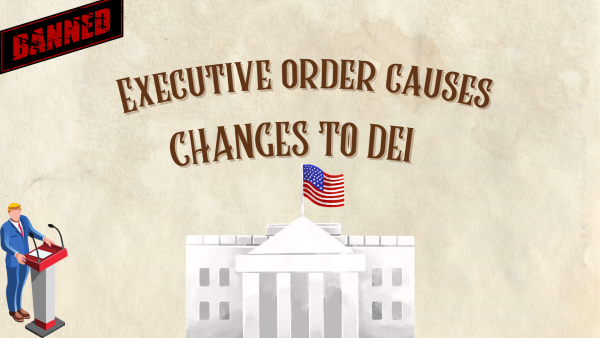NYU Professor lectures on reality of climate change
The New York University Director of Environmental Studies and Animal Studies Initiative, Dale Jamieson, hosted a lecture on Monday, April 7, in the Bradbury Thompson Center about the realities of climate change.
Titled “Reason in a Dark Time: Why the Struggle Against Climate Change Failed – And What it Means for Our Future”, Jamieson’s lecture is a follow up to his recently released book “Reason in a Dark Time” which suggests that there is a possibility that humans have drastically altered the environment to a point that there is no coming back in the near future.
“We have committed the world of the future to a radically different planet than the one that we have known and our ancestors have known,” Jamieson said.
Jamieson went on to discuss the history of climate change, dating back much further than the majority of the public is aware of. He also talked of a chronological chain of events including the first public declaration by political officials regarding climate change. Lyndon B. Johnson, for example, was actually the first U.S. president to speak publicly about climate change.
“Fifty years ago is the first time a president has actually made a statement on climate change. Not only do we have a steady history with the growth and development of science, but we have an issue that was already in the Oval Office fifty years ago,” Jamieson said. “Why, despite the steady growth of scientific knowledge and policy initiatives at every level, have we failed to act? Given this story that I have told you… How could it be that we have failed to act?”
Jamieson went into detail about a long history of claims of denial commonly made by conservative politicians.
“We have this thing called organized denial … Not only are the strategies the same with climate change that have been used with DDT, tobacco and cancer, and second hand smoke and all these other things, but in many cases it’s the same people who’ve been involved in all these issues,” Jamieson said.
“If you have an industry that is making profits from DDT, tobacco, second hand smoke, fossil fuels … you may know that someday the world’s going to change … but every day that you prevent that is a victory for you, so it’s a game of delay essentially. It’s not in some sense about the science. It’s not about the policy. It’s essentially about delaying changes in the service of protecting the presidential system.”
What Jamieson says here is that the world will change and move past using a fossil fuel economy, but it’s going to take a very long time, and denying climate change only digs a deeper hole.
On March 25, Washburn hosted a panel of environmental and energy experts who discussed how climate change could impact the future of Kansas. They argued that promoting the economic benefits of reducing environmental problems would better encourage people to act to fight climate change. Jamieson expressed agreement with this view.
“I think in this way we need to engage in whatever motivations that people have,” Jamieson said. “In an ideal world, people are doing the right thing and they’re benefitting from that. If you can align the economic incentives with things that are going to make the environment better, I’m all in favor of it.”
Your donation will support the student journalists of Washburn University. Your contribution will allow us to purchase equipment and cover our annual website hosting costs.








